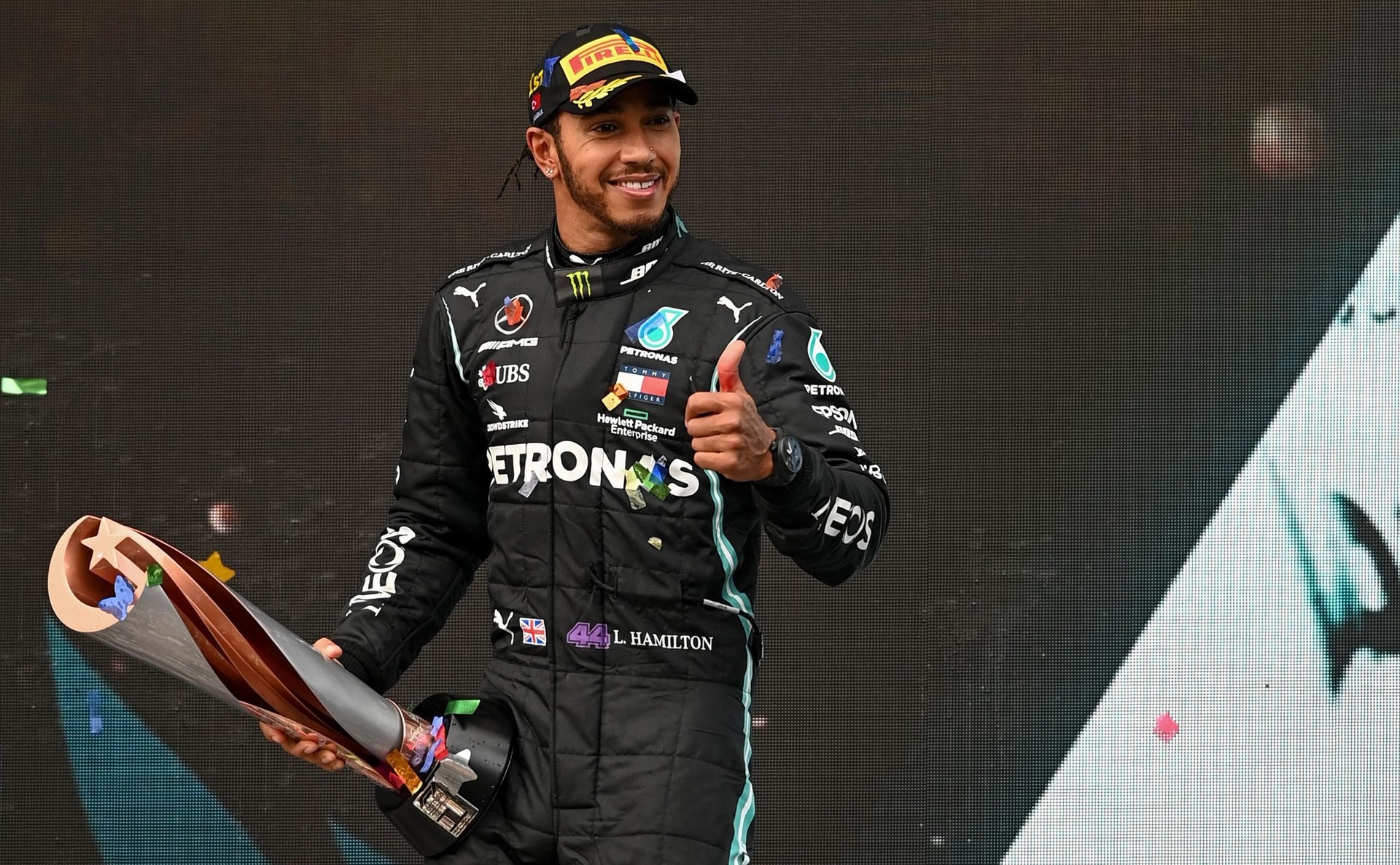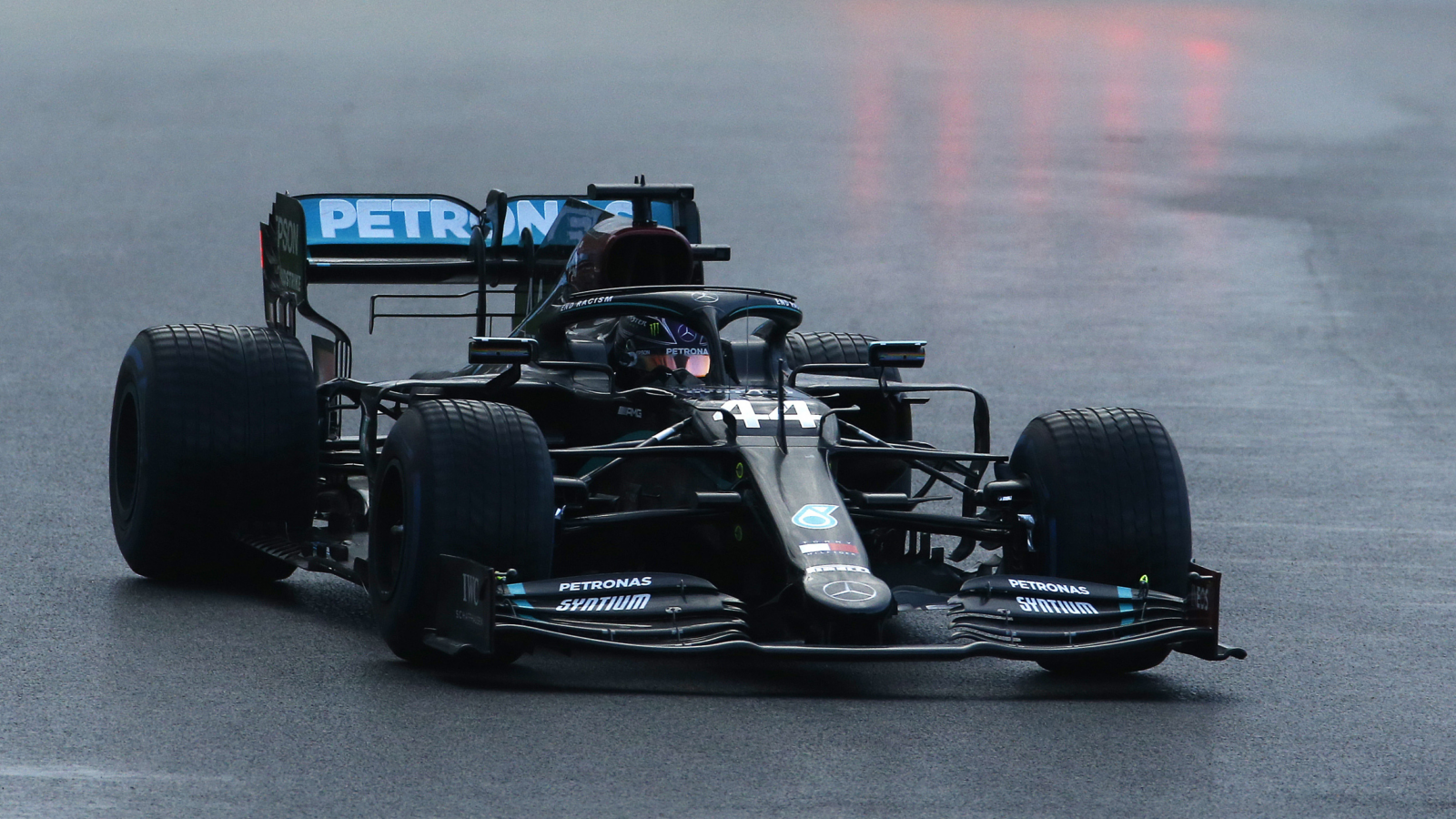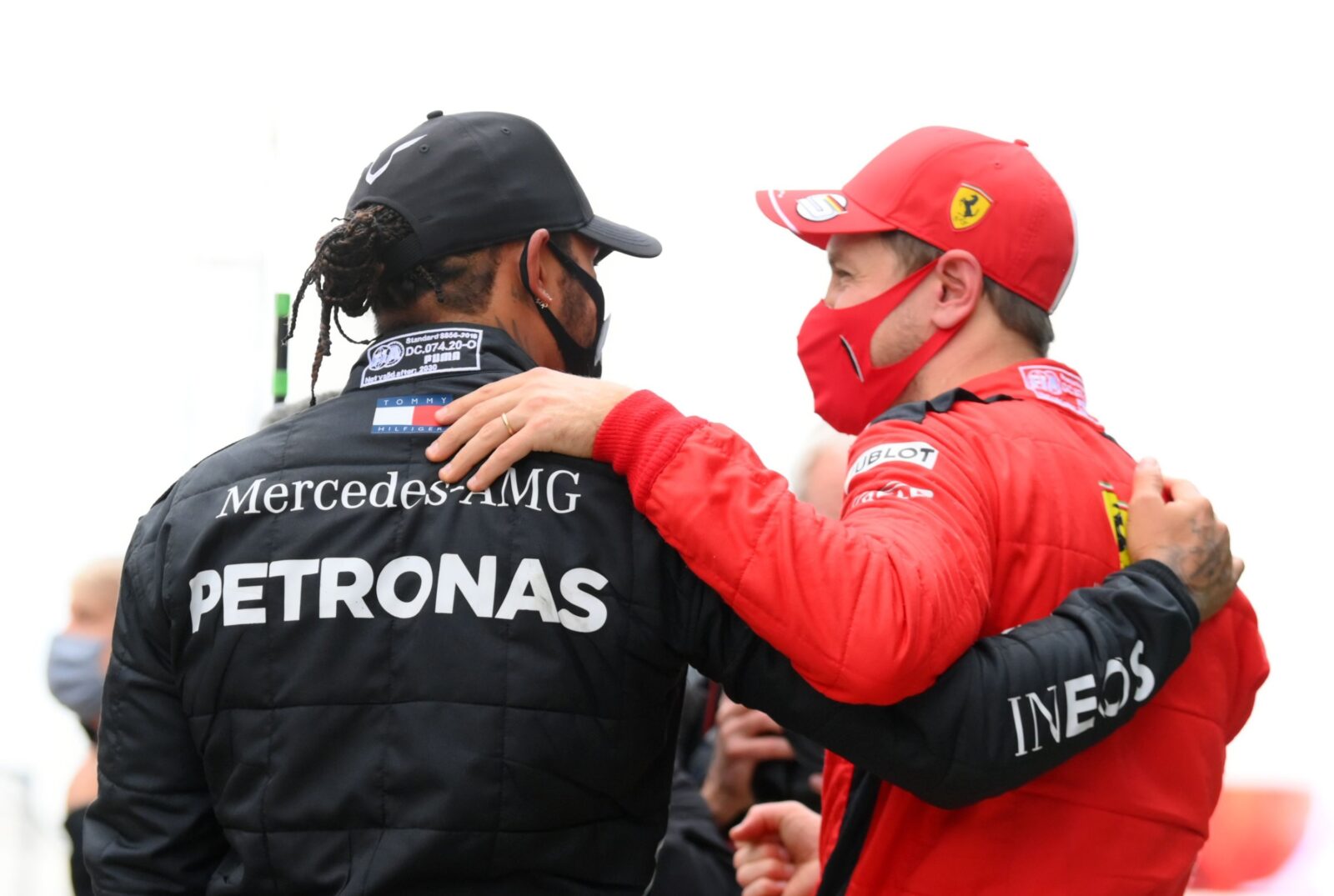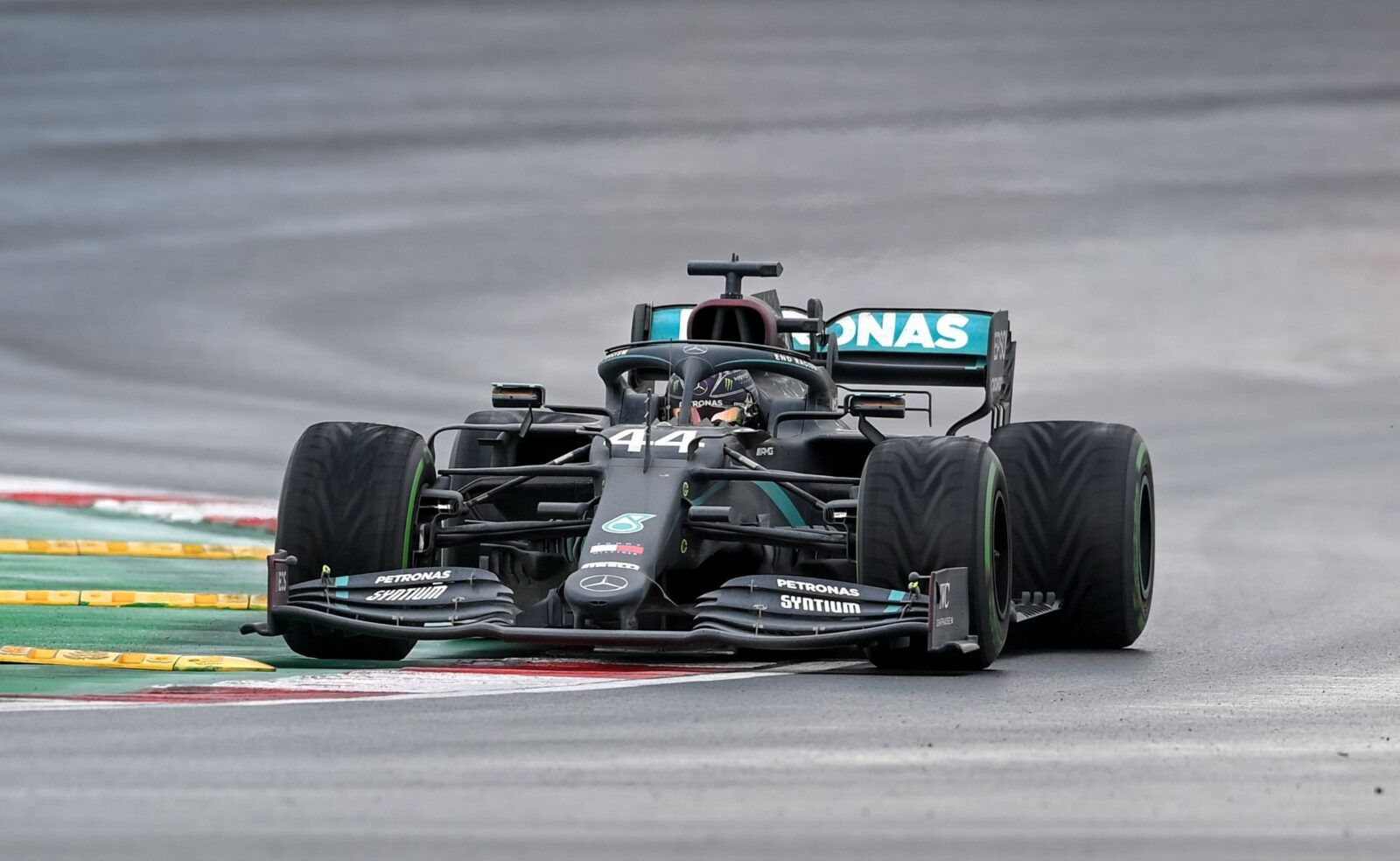
The 2020 Turkish Grand Prix at Istanbul Park remains one of Formula 1's most memorable races. On a rain-soaked Sunday that tested the limits of driver skill and strategy, Lewis Hamilton's drive to his seventh world championship embodied both personal triumph and motorsport history in equal measure.
The weekend began under unprecedented circumstances. Istanbul Park's return to the Formula 1 calendar after a nine-year absence came amid the pandemic-altered 2020 season, but it was the track's freshly laid asphalt that would prove the biggest talking point.
The new surface, combined with Pirelli's hardest tire compounds and persistent rain, created conditions that even the sport's most experienced drivers struggled to master.

Practice sessions saw lap times more than 10 seconds slower than expected, with drivers comparing the surface grip to "driving on ice." This challenge was amplified during qualifying, where Racing Point's Lance Stroll emerged as the surprise pole-sitter—his first in Formula 1 and the team's first since their Force India days.
The race itself unfolded like a masterclass in adapting to ever-changing conditions. Starting from sixth on the grid, Hamilton's early race patience proved crucial.
While others gambled on early pit stops or aggressive moves, the Mercedes driver methodically worked his way through the field, preserving his intermediate tires long past their expected lifespan.

"The track was so slippery, and we were all struggling so much," Hamilton said after crossing the finish line that day. "But we kept our cool, and this is what we came out with. I want to say a huge thanks to our men and women back at the factory and at the track for the incredible work they do."
The significance of Hamilton's victory in the 2020 Turkish GP extended beyond the numbers. By matching Michael Schumacher's record of seven world championships, he reinforced his position among Formula 1's greatest drivers.

The manner of his victory—managing worn intermediate tires for 50 laps while maintaining a pace others couldn't match on fresher rubber—demonstrated the combination of skill and tactical awareness that defined his career.
For Racing Point, the weekend represented both triumph and heartbreak. Stroll's pole position and strong early race lead suggested a potential maiden victory, but tire management issues saw him slip to ninth by the checkered flag. His teammate Sergio Perez, however, secured second place, marking one of the team's finest results before their transformation into Aston Martin.
Sebastian Vettel's third-place finish, achieved in his final season with Ferrari, would prove to be his last Formula 1 podium. The four-time world champion's late-race pass on Charles Leclerc added a poignant note to what was already an emotionally charged day.
The race's technical challenges highlighted Istanbul Park's competitive aspect. The multi-apex Turn 8, already one of Formula 1's most demanding corners, became even more treacherous in the wet conditions.

The track's elevation changes and off-camber turns, combined with the low-grip surface, created a perfect storm that rewarded precise car control and tactical thinking.
Red Bull later listed Istanbul Park's "Diabolica" nicknamed turn 8 as the eighth toughest ever on their official website in 2023.
Mercedes' trackside engineering director Andrew Shovlin later described the race as "one of the most challenging we've faced," after the dominant team of the era had to adapt their strategy multiple times throughout the race.
The 2020 Turkish Grand Prix also marked a turning point in Formula 1's approach to track surfaces and tire compounds. The challenges faced during the weekend led to discussions about track preparation and tire selection for newly resurfaced circuits, influencing decisions in subsequent seasons.